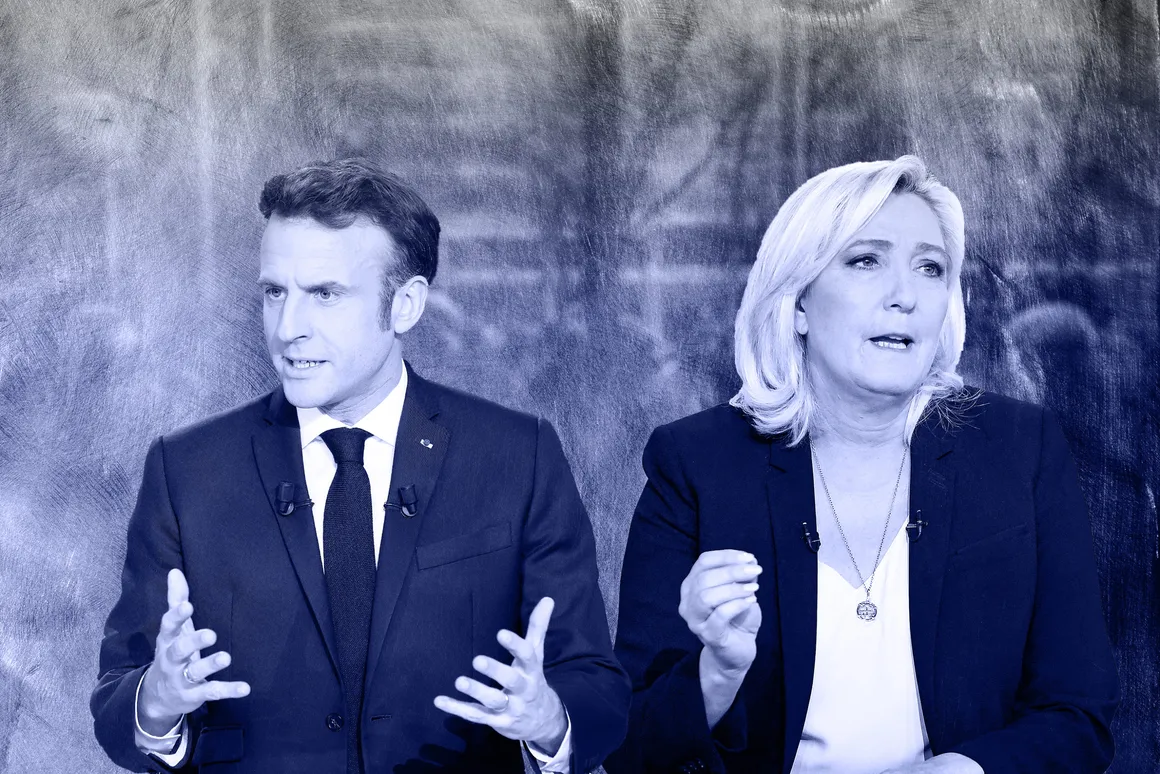April 24, 2022
-Reuters
PARIS, April 24 (Reuters) – French President Emmanuel Macron defeated his far-right rival Marine Le Pen on Sunday by a comfortable margin, early projections by pollsters showed, securing a second term and heading off what would have been a political earthquake.
The first projections showed Macron securing around 57-58% of the vote. Such estimates are normally accurate but may be fine-tuned as official results come in from around the country.
Cheers of joy erupted as the results appeared on a giant screen at the Champ de Mars park at the foot of the Eiffel tower, where Macron supporters waved French and EU flags. People hugged each other and chanted “Macron”.
In contrast, a gathering of dejected Le Pen supporters erupted in boos and whistles as they heard the news at a sprawling reception hall on the outskirts of Paris.
Macron can expect little to no grace period after many, especially on the left only voted for him reluctantly to block the far-right from winning. Protests that marred part of his first mandate could erupt again quite quickly, as he tries to press on with pro-business reforms.
“There will be continuity in government policy because the president has been reelected. But we have also heard the French people’s message,” Health Minister Olivier Veran told BFM TV.
A first major challenge will be the parliamentary elections. They are just around the corner, in June, and opposition parties on the left and right will immediately start a major push to try to vote in a parliament and government opposed to Macron.
Philippe Lagrue, 63, technical director at a theatre in Paris, said earlier in the day that he had cast a ballot for Macron, after voting for the hard-left Jean-Luc Melenchon in the first round.
He said he will vote for Melenchon again in the legislative elections: “Melenchon Prime Minister. That would be fun. Macron would be upset, but that’s the point.”
Ifop, Elabe, OpinionWay and Ipsos pollsters projected a 57.6-58.2% win for Macron.
Victory for the centrist, pro-European Union Macron would be hailed by allies as a reprieve for mainstream politics that have been rocked in recent years by Britain’s exit from the European Union, the 2016 election of Donald Trump and the rise of a new generation of nationalist leaders.
Macron will join a small club – only two French presidents before him have managed to secure a second term. But his margin of victory looks to be tighter than when he first beat Le Pen in 2017, underlining how many French remain unimpressed with him and his domestic record.
That disillusion was reflected in turnout figures, with France’s main polling institutes saying the abstention rate would likely settle around 28%, the highest since 1969.
Against a backdrop of Russia’s invasion of Ukraine and the ensuing Western sanctions that have exacerbated a surge in fuel prices, Le Pen’s campaign homed in on the rising cost of living as Macron’s weak point.
She promised sharp cuts to fuel tax, zero-percent sales tax on essential items from pasta to diapers, income exemptions for young workers and a “French first” stance on jobs and welfare.
Macron meanwhile pointed to her past admiration for Russia’s Vladimir Putin as showing she could not be trusted on the world stage, while insisting she still harboured plans to pull France out of the European Union – something she denies. read more
In the latter part of the campaign as he sought the backing of left-leaning voters, Macron played down an earlier promise to make the French work longer, saying he was open to discussion on plans to raise the retirement age from 62 to 65.
In the end, as viewer surveys after last week’s fractious televised debate between the two testified, Le Pen’s policies – which included a proposal to ban people from wearing Muslim headscarves in public – remained too extreme for many French.
Ex-merchant banker Macron’s decision to run for the presidency in 2017 and set up his own grass roots movement from scratch up-ended the old certainties about French politics – something that may come back to bite him in June’s parliamentary elections.
Instead of capping the rise of radical forces as he said it would, Macron’s non-partisan centrism has sped the electoral collapse of the mainstream left and right, whose two candidates could between them only muster 6.5% of the first-round vote on April 10.




